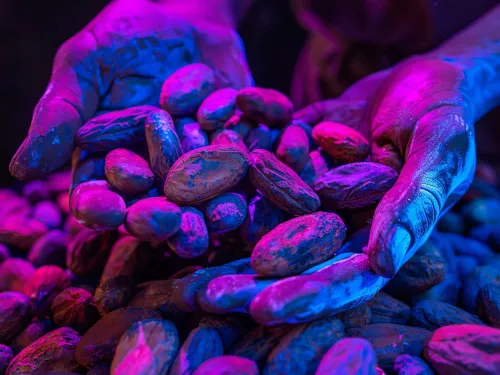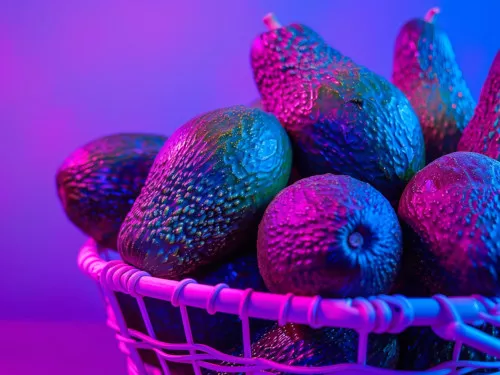Natural Testosterone Booster Foods
2291
Are you curious about diet's impact on low testosterone? Explore ways to boost levels, especially through food choices.

Did you know that low testosterone levels lower as you age?
Making lifestyle adjustments and using medications can often lower testosterone levels. Specific foods may also help achieve a healthy testosterone level.
Testosterone is a sex hormone that affects sex drive, bone and muscle health, sperm production, and blood cell production. Did you know that testosterone levels decline as you age? Of course, other factors can also cause low testosterone, including specific medications, high body fat levels, and certain health conditions.
Maintaining optimal testosterone levels is important with a health-promoting lifestyle, including a balanced diet. Research suggests diets high in ultra-processed foods and low in nutrient-dense options may contribute to low testosterone. If you have low testosterone, adhere to medical advice and consider adopting a diet rich in nutrients essential for testosterone health.
Book Your Appointment Today!
Contact us at info.bkk@pulse-clinic.com or chat on your preferred platform:
![]() +66 65 237 1936
+66 65 237 1936  @PULSEClinic
@PULSEClinic ![]() PulseClinic
PulseClinic
What is Low Testosterone?
Low testosterone, known as hypogonadism or low T, happens when testosterone levels drop below 300 nanograms per deciliter. It is often treated with testosterone replacement therapy. Hypogonadism is very common; approximately 40% of men over 45 and 50% of men in their 80s are diagnosed with it.
Natural Testosterone Booster Foods
Here are the 7 foods rich in nutrients that may help you promote healthy testosterone levels.
1. Fatty fish
Fatty fish like salmon and sardines provide essential nutrients for hormonal health, such as vitamin D, zinc, and omega-3 fatty acids. While some studies have linked some high-fat foods, like fried foods, to lower testosterone levels, low-fat may also negatively affect testosterone levels.
A study has reviewed that low-fat dietary patterns were associated with reduced testosterone levels compared to higher-fat diets. However, more high-quality research is needed to understand this relationship fully.
However, incorporating sources of healthy fats, such as fatty fish, into your diet can benefit overall health, including hormonal balance as fatty fish are rich in zinc, vitamin D, and protein, which are essential nutrients for maintaining healthy testosterone levels.
Studies suggest that men with low vitamin D levels often have lower testosterone levels, as vitamin D is crucial for male reproductive health. So, if you are not fond of fish, you can consider supplementing with fish oil instead.
2. Dark, leafy greens
Dark, leafy greens provide a wealth of micronutrients, including magnesium, a mineral crucial for maintaining optimal testosterone levels, particularly in older men. Magnesium is believed to enhance testosterone bioactivity by reducing oxidative stress. Oxidative stress is an imbalance between antioxidant defenses and free radicals in your body.
Oxidative stress and inflammation can diminish testosterone levels, making it beneficial to include nutrients that combat oxidative stress.
An earlier study involving 399 men aged 65 and above revealed that those with higher blood magnesium levels tended to have higher testosterone levels. Furthermore, research conducted on Taiwanese men indicated that a lower intake of leafy greens correlated with reduced testosterone levels. Therefore, incorporating more magnesium-rich foods like spinach, kale, and collard greens into your diet may support healthy testosterone levels.
3. Cocoa products
Cocoa products like cocoa powder and cacao nibs are rich in magnesium and flavonoid antioxidants, which support testosterone levels.
Flavonoids are plant compounds known for their potent antioxidant and anti-inflammatory properties within the body. Specific flavonoids, including those found in cocoa, such as quercetin and apigenin, may enhance testosterone production from Leydig cells in the testicles. These cells are responsible for the majority of testosterone production in men.
When selecting a cocoa product, go for varieties without added sugar or minimal added sugar. Consider cocoa powder, cacao nibs, or dark chocolate with low sugar content to enjoy their substantial health benefits.
Add us on Line and stay in touch.
4. Avocados
Avocados are rich in healthy fats essential for hormonal balance. They also constrain magnesium and boron, a mineral that research suggests may support testosterone levels.
Boron is a trace mineral that influences testosterone metabolism and protects against its degradation. Although some studies say high-dose boron supplementation could increase testosterone in certain people, the findings are inconsistent. Currently, boron supplements are not recommended for boosting testosterone. However, incorporating dietary sources like avocados may contribute to maintaining healthy testosterone levels.
5. Eggs
Egg yolks are packed with healthy fats, protein, and selenium, which is an antioxidant mineral. Selenium will promote testosterone production by activating specific pathways and gene expression. Moreover, studies in both humans and animals indicate that optimal selenium levels in the blood correlate with higher testosterone levels.
However, further research, particularly in human subjects, is needed to fully understand selenium’s impact on testosterone. Eggs are a nutritious food choice unless you have an egg allergy. Remember, whole eggs are significantly more nutritious than egg whites alone, as the yolks contain the majority of micronutrients.
6. Berries, cherries, and pomegranates
Berries, cherries, and pomegranates are rich in flavonoid antioxidants, which could shield testosterone-producing cells from damage and boost testosterone production.
A previous study on rats revealed that supplementation with pomegranate juice protected against induced oxidative stress raised testosterone levels, and safeguarded Leydig cells, responsible for testosterone production from injury.
Moreover, preliminary evidence suggests that supplementing with pomegranate juice might elevate salivary testosterone levels in male athletes. However, further research involving humans is necessary to confirm these effects on testosterone levels.
So, incorporating antioxidant-rich foods like these into your diet may support overall health, including hormonal balance.
7. Shellfish
Shellfish like oysters and clams are rich in zinc, selenium, and omega-3 fatty acids, nutrients that are crucial for maintaining optimal testosterone levels.
Zinc plays a critical role in reproductive health, and deficiency can lead to hypogonadism. While high-dose zinc supplements have shown effectiveness in treating hypogonadism in certain men, they are not currently recommended universally for this purpose. However, eating foods high in nutrients, including zinc, selenium, and omega-3, fatty acids may help support hormonal health and maintain optimal testosterone levels.
Alternative methods to increase testosterone
Making healthy dietary changes can potentially improve low testosterone levels, but they do not constitute a cure for hypogonadism. Confirmation of low testosterone requires a doctor's evaluation, including a physical exam and blood test.
Upon diagnosis of low testosterone, your doctor might recommend testosterone replacement therapies offered in various formulations:
- Tablets or pills
- Skin patches
- Testosterone gel
- Testosterone Injections
You will need to make sure to discuss all potential serious effects of these medications with your doctor and consider dietary adjustments to enhance overall health beyond addressing low testosterone.
Factors such as body weight and lifestyle habits significantly influence testosterone levels. For example, obesity increases the risk of hypogonadism compared to maintaining a moderate weight. So, maintaining a healthy weight is important for hormonal balance.
Increasing physical activity, quitting smoking (if you smoke), and reducing alcohol and drug consumption can also aid in improving testosterone levels.
Your hormonal health, including testosterone levels, can be influenced by diet and lifestyle. Eating foods rich in key nutrients like vitamin D, magnesium, zinc, and flavonoid antioxidants may promote hormonal balance.
If you suspect low testosterone or experience symptoms, seek guidance from us or a healthcare professional near you for proper testing and treatment.
Book Your Appointment Today!
Contact us at info.bkk@pulse-clinic.com or chat on your preferred platform:
Loading...
Clinic Locations
Loading...











